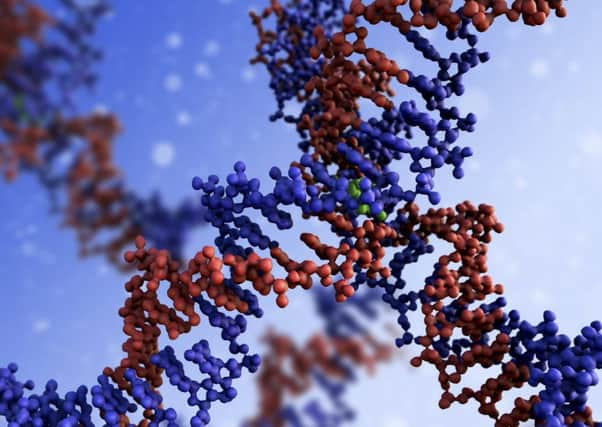Edinburgh scientists pinpoint genes that slash lifespan


Using genetic data from more than 152,000 people, experts pinpointed two inherited variants in the genetic code which may affect how long people live.
One of the variants is linked to a gene associated with an increased risk of lung cancer and severe respiratory problems among smokers, while the other is in a gene associated with Alzheimer’s and high cholesterol.
Advertisement
Hide AdAdvertisement
Hide AdExperts said the findings were the “tip of the iceberg” and further research could have a major impact on our understanding of how genes determine longevity. More than two thirds of people will inherit a single copy of these variants from a parent, which could reduce life expectancy by up to a year, the Edinburgh University study found.
Around three in 1000 will inherit two copies of both variants, meaning they can expect to die up to three years earlier.
Dr Jim Wilson, of Edinburgh University’s Usher Institute of Population Health Sciences and Informatics, said: “These discoveries are the tip of the iceberg. As more data become available later this year, we expect to see many more discoveries.
“Excitingly, some of these might have a beneficial effect on health.”
Advertisement
Hide AdAdvertisement
Hide AdThe gene change linked to Alzheimer’s disease had a greater effect on women while the variation associated with lung disease had its greatest effect on men.
The team looked at more than 37 million DNA code sequences, known as letters, to uncover the two variants. Colleague Dr Peter Joshi said: “The huge data pool allows us to say with great confidence that these changes are making a difference.”
Despite the importance of these findings, Dr Joshi warned that lifestyle is still the most important factor in life expectancy. He added: “Although the effect of these genetic variants on lifespan is surprisingly large, it is important to remember that this is only part of the story.
“Lifestyle has the greatest impact on how long we live and that is under our control.”